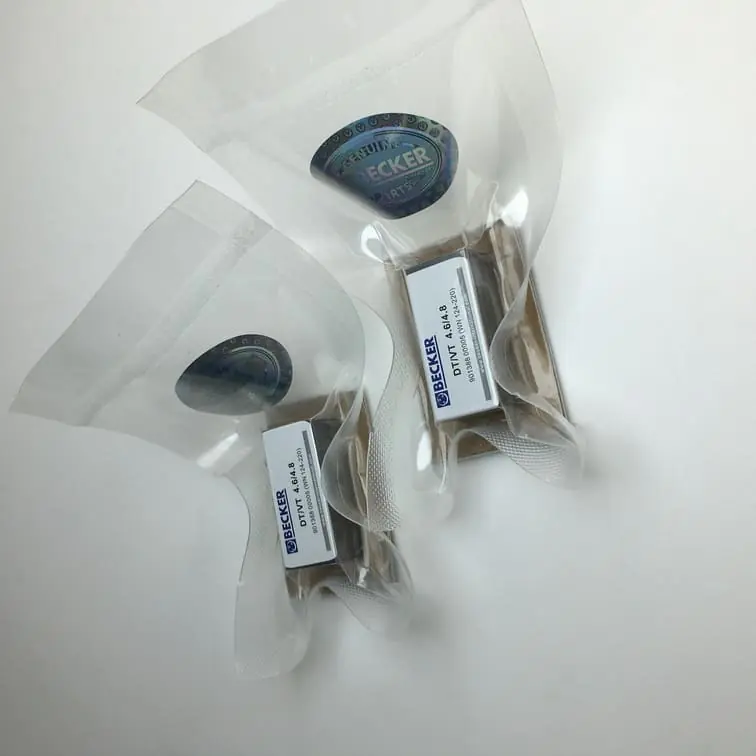Changing oil is a necessary maintenance task for vehicles, ensuring their engines run smoothly and last longer. Traditionally, oil changes involve draining oil from beneath the car. However, there’s a growing interest in using vacuum pumps as an alternative, offering a cleaner and often more convenient method. In this article, we explore whether vacuum pumps work for oil changes, how they compare to traditional methods, and what you need to know to decide if they are right for you.
What is a Vacuum Pump?
Basic Overview of a Vacuum Pump
A vacuum pump is a device that removes gas molecules from a sealed volume, creating a partial vacuum. This makes vacuum pumps valuable tools in several applications, from industrial processes to medical devices and even household use. In the automotive world, a vacuum pump can also be employed for tasks such as brake bleeding and, more recently, oil extraction.
In the context of oil changes, a vacuum pump is used to extract engine oil through the dipstick tube, rather than draining it from below the vehicle. This method is gaining popularity for its cleanliness and convenience.
Types of Vacuum Pumps
Several types of vacuum pumps can be used for extracting engine oil:
| Type | Application | Pros | Cons |
|---|---|---|---|
| Manual Pump | Household and small-scale use | Affordable, easy to use | Requires physical effort |
| Electric Pump | Automotive and heavy-duty tasks | Fast, no manual labor required | Requires power source, higher cost |
| Pneumatic Pump | Industrial and garage use | Very efficient, good for frequent use | Requires a compressor |
Vacuum pumps designed for oil extraction are often equipped with specialized fittings and tubes to facilitate easy oil removal. They provide a convenient solution for people who want a cleaner oil change process without getting under their vehicle.
How Does a Vacuum Pump Work for Oil Changes?
The Process of Using a Vacuum Pump
Using a vacuum pump for an oil change is a straightforward process that generally involves the following steps:
- Prepare the Vehicle: Make sure the car is parked on a flat surface, and the engine is slightly warmed up. Warm oil flows more easily, making the extraction faster and more efficient.
- Insert the Tube: Attach the vacuum pump tube into the dipstick opening until it reaches the bottom of the oil pan.
- Activate the Pump: If you’re using a manual pump, start pumping to create a vacuum. If you’re using an electric or pneumatic version, switch it on. The pump will create negative pressure, sucking out the used oil into a container.
- Extract All the Oil: Continue pumping until you feel resistance or see that the oil extraction has slowed down significantly. Be sure to check that all oil is extracted.
- Dispose of the Oil Properly: Once extracted, the used oil should be transferred into an appropriate container for recycling.
Comparing Traditional and Vacuum Pump Methods
| Feature | Traditional Drain Plug Method | Vacuum Pump Method |
|---|---|---|
| Cleanliness | Messy, oil can spill during draining | Clean, minimal mess |
| Convenience | Requires getting under the vehicle | Can be done from the engine bay |
| Time | Takes time to unscrew, drain, and tighten | Faster extraction |
| Oil Residue | Drains oil completely if done right | Potentially leaves some residue |
Using a vacuum pump can be a cleaner and more efficient process. However, some argue that it may not remove all the sludge and residue that a traditional drain plug method can.

90138800005 | WN 124-220 Original Becker Set of 5 Vanes – A highly effective vacuum pump vane that ensures proper suction and enhances the efficiency of oil extraction.
Pros and Cons of Using Vacuum Pumps for Oil Changes
Benefits of Using Vacuum Pumps
- Cleaner Process
- Using a vacuum pump for oil extraction eliminates the mess associated with traditional oil changes. There is no need to remove the drain plug, risking oil splattering onto the floor or onto yourself.
- Convenience
- If you don’t have a lift or ramps to get under the car, using a vacuum pump allows you to stay comfortably above the engine bay. This is particularly useful for people living in apartments or places without proper garage access.
- Faster Extraction
- For smaller vehicles and newer engines, vacuum extraction can be quicker. As long as you know the dipstick tube reaches the lowest point of the oil pan, it’s simply a matter of letting the pump do the work.
Drawbacks to Consider
- Oil Residue
- One common concern is that vacuum pumps may leave a small amount of oil residue and sludge behind, especially if the dipstick tube doesn’t reach the lowest parts of the oil pan. Over time, this residue can accumulate, possibly reducing engine efficiency.
- Initial Investment
- While a basic manual pump may be inexpensive, high-quality electric pumps or pneumatic pumps require a greater initial investment, which may not be worthwhile if you’re only changing oil occasionally.
- Compatibility
- Some vehicles have a unique oil pan configuration that makes using a vacuum pump less effective. Always check the feasibility for your specific make and model.
Choosing the Right Vacuum Pump for Oil Changes
Manual vs. Electric Vacuum Pumps
- Manual Pumps: These are suitable for those who don’t mind putting in a little effort. They are inexpensive and compact but require more manual labor. Good for occasional use.
- Electric Pumps: Electric pumps are faster and more efficient. They are ideal for those who want to minimize effort and save time. However, they are more expensive and require a power source.
- Pneumatic Pumps: These pumps are powered by compressed air, making them perfect for workshop settings. They’re efficient and easy to use but require an air compressor to function.
Top Considerations
- Oil Capacity: Make sure the pump you choose has the capacity to handle the amount of oil in your engine. Some vacuum pumps are too small for large engines.
- Tubing Quality: High-quality flexible tubing ensures the oil is extracted efficiently without leaks.
- Portability: If you often do maintenance away from home, opt for a vacuum pump that’s lightweight and portable.
Real User Experiences with Vacuum Pumps for Oil Changes
Many DIY enthusiasts and even some mechanics have embraced vacuum pumps for their simplicity and cleanliness. Here are a few perspectives from real users:
“I live in an apartment with no garage. Using a vacuum pump for oil changes has made my life a lot easier. No ramps, no mess – just clean and simple.” – Michael, Houston
“The first few times I used a vacuum pump, I was skeptical if all the oil was coming out. But after a few tries, I got the hang of it, and now I wouldn’t change my oil any other way.” – Sara, New York
“I work on different types of vehicles, and while vacuum pumps are great for most cars, I still prefer to get under the vehicle for larger trucks. It feels more thorough.” – Dave, Chicago
Maintenance Tips for Vacuum Pumps
Keeping Your Vacuum Pump in Top Condition
- Regular Cleaning: Oil residue can build up in the pump. Make sure to clean the tubing and the pump itself after every use to avoid clogging.
- Check the Seals: The pump’s efficiency depends on airtight seals. Inspect the rubber seals and valves periodically to ensure they are in good shape.
- Replace Worn Parts: Over time, parts such as carbon vanes may wear out. Replacing them will maintain your pump’s performance and ensure effective oil extraction. Consider using the 90137301010 | WN 124-205 Original Becker Set of 10 Vanes for top-quality replacements.

Conclusion: Are Vacuum Pumps Effective for Oil Changes?
In conclusion, vacuum pumps can indeed work effectively for oil changes, offering a clean and convenient alternative to traditional draining methods. They are particularly beneficial for those who want to avoid crawling under their vehicle or creating a mess in their workspace. However, it’s essential to acknowledge the limitations, such as the potential for leftover residue and the higher initial cost of some pump types.
